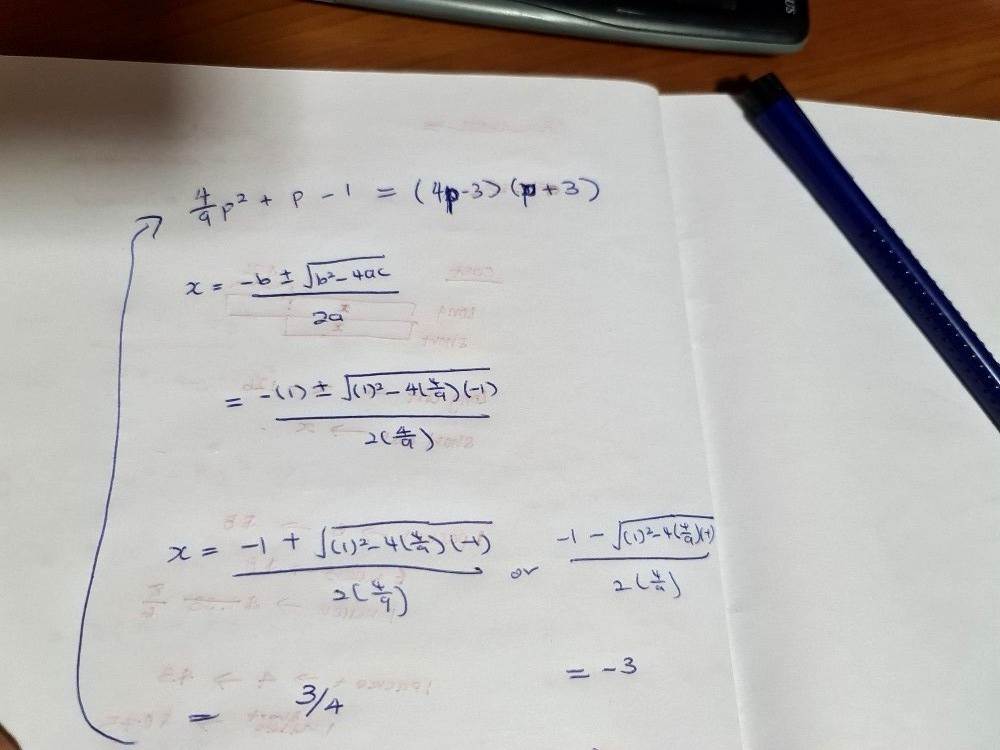Nathaniel's answer to Kkk's Secondary 2 Maths Singapore question.
done
1 Upvotes
clear 0 Downvotes
Using the quad formula which is x=-b there line u see, complete b . Both same formula
How i get 4p-3 from 3/4
(P-3/4)(p+3) is same as (4p-3)(p+3)
And 4/9p^2 + p - 1 = 4p^2 +9p -9 (9 is multiplied)
How i get 4p-3 from 3/4
(P-3/4)(p+3) is same as (4p-3)(p+3)
And 4/9p^2 + p - 1 = 4p^2 +9p -9 (9 is multiplied)
Date Posted:
4 years ago



1. Answer missed out the (1/9) constant
2. They may not award method marks since the question requested for factorized expressions (i.e. there's no equal sign to begin with, there shouldn't be a reason to include equations as part of the answer).
I don't disagree that the method works; it can, just not what the question was asking for?
Second point - your factorised form, when expanded, will not give the original expression as what Mr Soon had mentioned. Kindly take note eh, thanks.